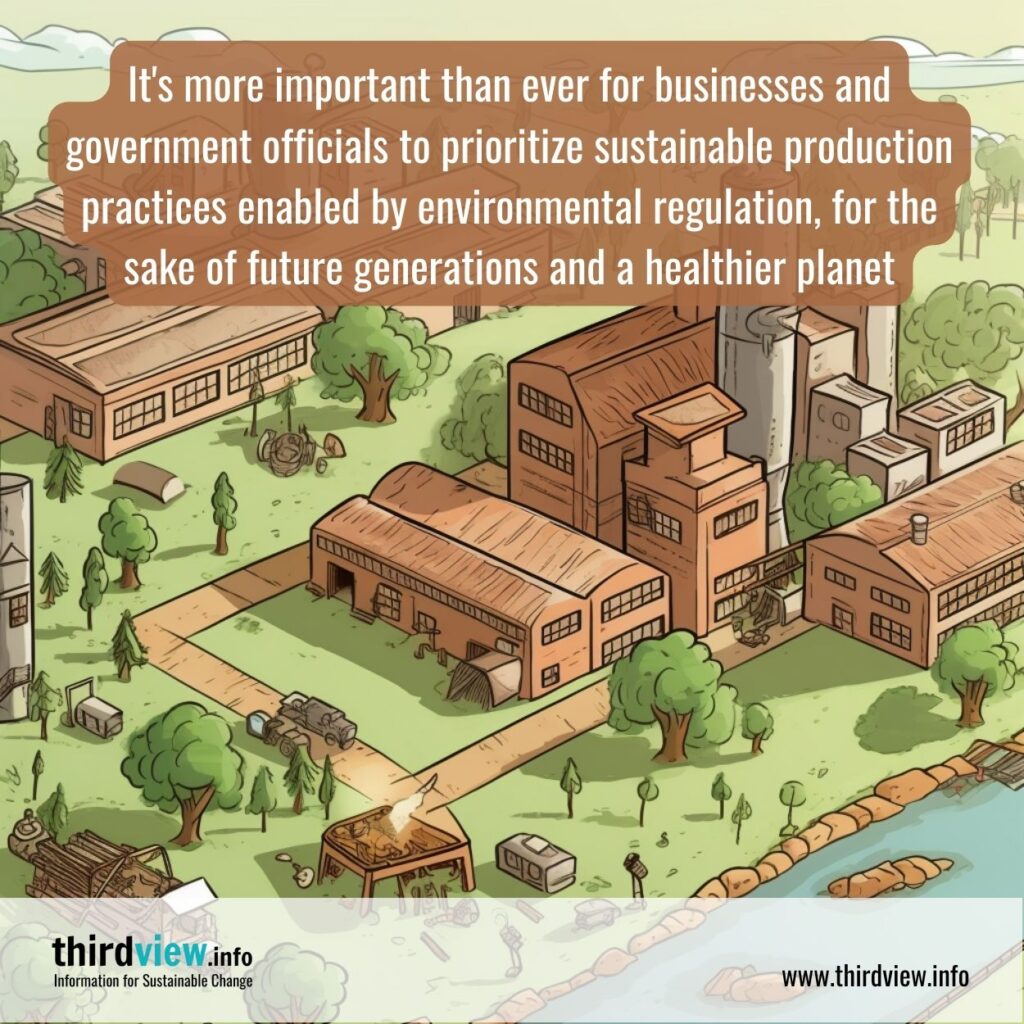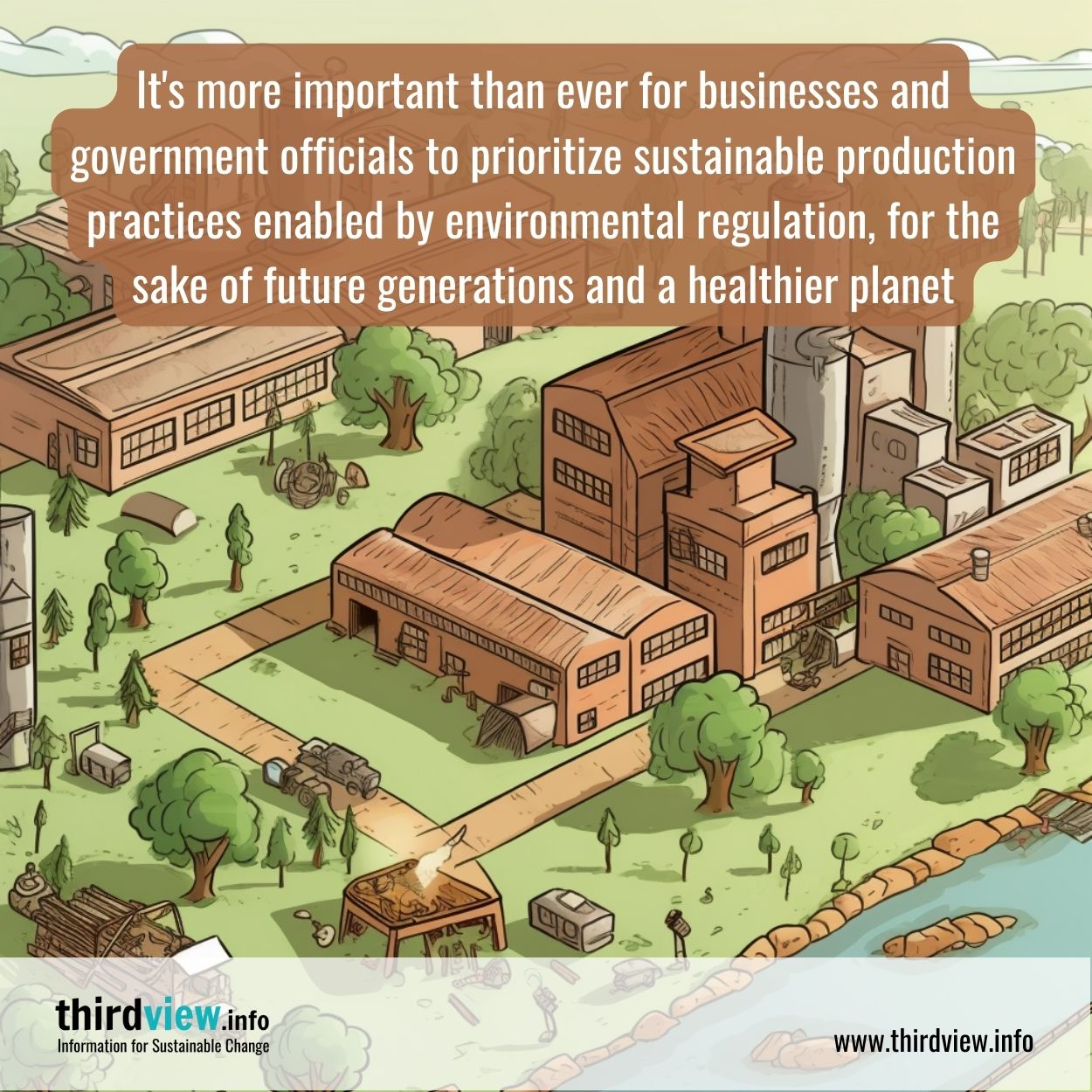In recent years, businesses around the world have been increasingly focused on sustainability. This is due largely to the fact that environmental regulatory policies have been put in place to ensure that production processes are conducted in ways that reduce their negative impact on the environment. Let’s take a look at how these policies work.
Environmental regulatory policies are laws and regulations that are designed to protect the environment by setting standards for acceptable levels of pollution, hazardous waste disposal, and other activities that could potentially damage our planet. These policies are enforced by governments at all levels—local, state, and federal—and they aim to prevent companies from polluting or otherwise harming the environment. As such, they provide businesses with an incentive to adopt sustainable production processes.
The implementation of environmental regulatory policies has had a significant impact on businesses’ ability to produce goods in a sustainable manner. Companies must now comply with certain standards for emissions, energy use, and resource conservation in order to stay in business. This has led many businesses to adopt practices such as renewable energy sources, waste reduction initiatives, green manufacturing techniques, and water reuse programs in order to remain compliant with these new regulations.
In addition to encouraging sustainable production practices through environmental regulation, governments can also incentivise companies by providing subsidies or tax breaks for those who use renewable energy sources or implement other sustainability-focused initiatives. By providing these incentives, governments help ensure that businesses are able to remain profitable while still adhering to strict environmental regulations.
Achieving compliance with environmental regulations requires understanding the specific requirements set forth by each law or regulation. In some cases, businesses may need to invest in new technologies or processes in order to meet these standards. Additionally, staying up-to-date with the latest policy changes will help ensure that all required steps are taken in order to remain compliant.
Environmental regulatory policies have become increasingly important for businesses looking to maintain their competitive edge while still producing goods sustainably. By implementing these policies and providing incentives for companies who embrace sustainability initiatives, governments are ensuring that future generations will be able to enjoy a healthy environment free from harmful pollutants and other contaminants produced by modern industry. With this in mind, it is clear why it is so important for business owners and government officials alike to understand the importance of sustainable production practices enabled by environmental regulation – now more than ever before.


